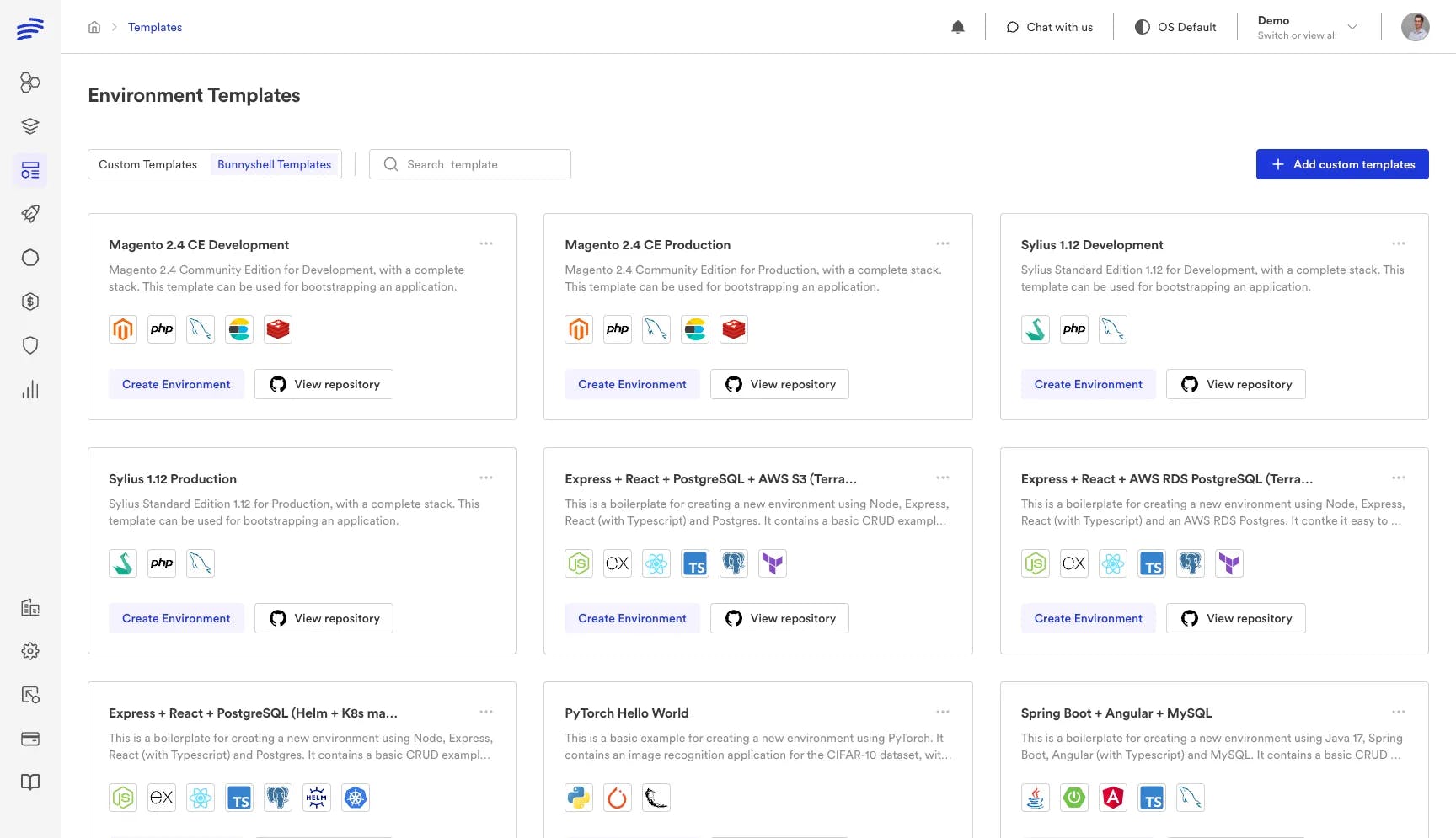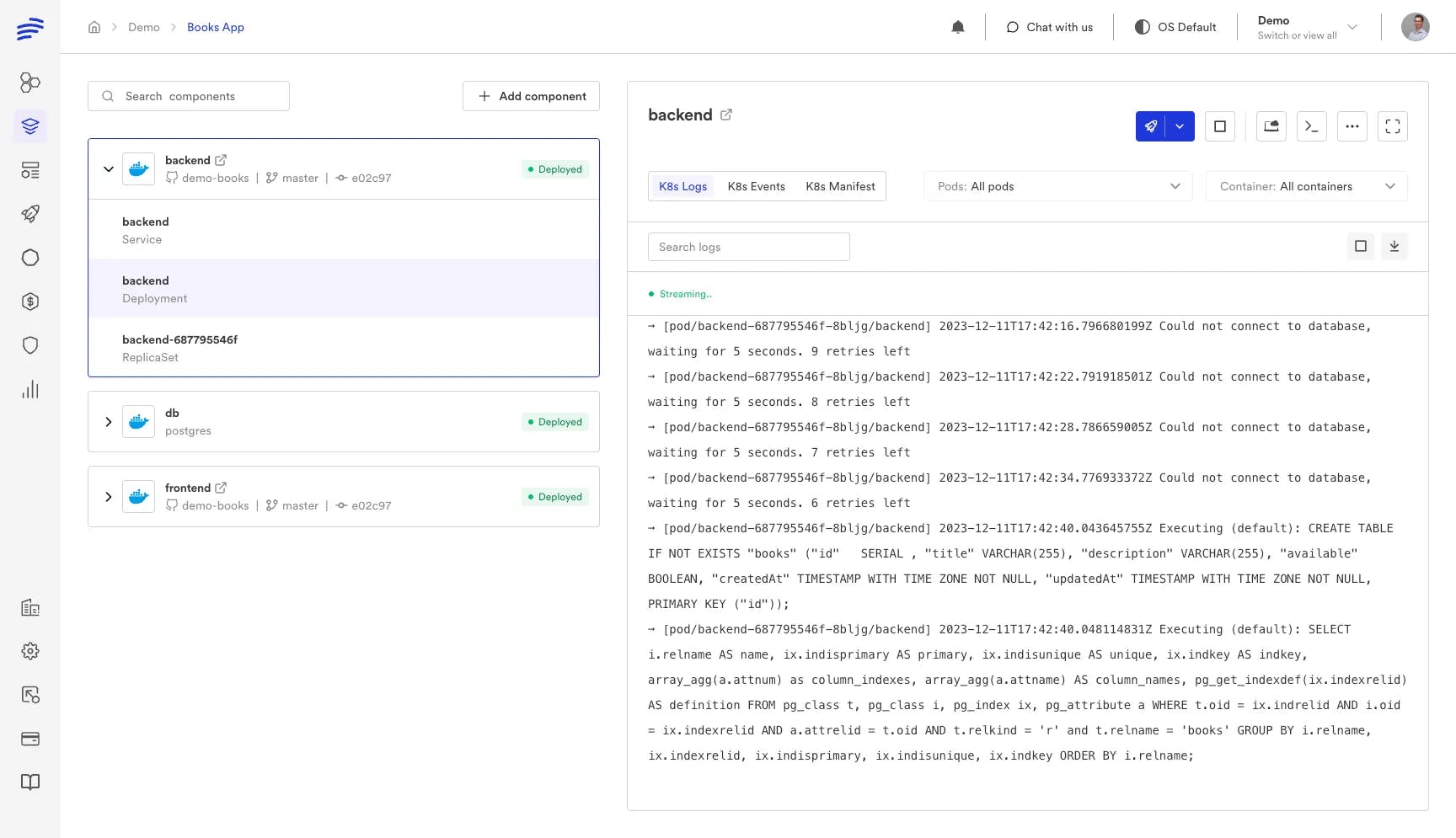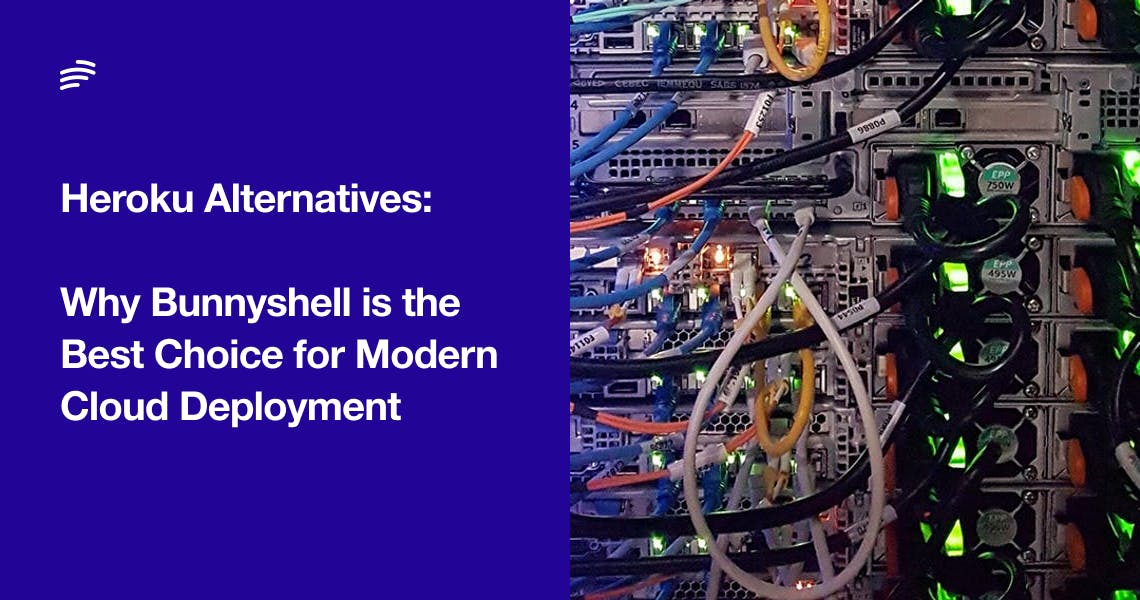With Heroku announcing significant changes, such as the discontinuation of its free tier, developers are left seeking alternatives that offer similar ease of use but more robust and scalable options. While Heroku was once the go-to for rapid deployment and management of applications, several alternatives now stand out, each offering unique benefits on different cloud platforms like AWS, Google Cloud, Azure, DigitalOcean, Linode, Hetzner, Vultr, and Scaleway. Among these, Bunnyshell shines as an exceptional alternative, especially for businesses looking for a smooth transition from Heroku to a more powerful and versatile solution.
In this article, we'll explore why Bunnyshell stands out, compare other leading Heroku alternatives, and discuss their respective pros and cons.
Why Switch from Heroku?
Heroku has been beloved for its simplicity and integrated solutions that allowed developers to deploy, scale, and manage applications easily. However, recent developments have shifted its position in the cloud ecosystem:
- Cost Changes: Heroku’s move to discontinue its free tier has pushed many to look for more cost-effective alternatives.
- Scalability Issues: While Heroku is perfect for small-scale applications, many find it lacking when scaling to more complex, larger apps.
- Performance Concerns: As applications grow, Heroku’s limited resources can struggle with performance issues.
- Platform Limitations: Heroku’s reliance on its own environment can sometimes lead to reduced flexibility compared to more open or customizable cloud platforms.

Introducing Bunnyshell: The Future of Cloud Deployment
Bunnyshell is a modern cloud platform designed for the entire application lifecycle — from development to production. Whether you want to deploy on AWS, Google Cloud, Azure, DigitalOcean, Vultr, Hetzner, or any other cloud, Bunnyshell supports multiple environments, enabling seamless cloud management and deployment across various infrastructures. But what makes Bunnyshell the ideal alternative to Heroku?
1. Multi-Cloud Flexibility
Bunnyshell lets you deploy your application on any major cloud provider, such as AWS, GCP, Azure, DigitalOcean, and many more. This multi-cloud capability allows you to choose the best infrastructure for your specific needs, whether it's performance, compliance, or cost.
2. Developer-Friendly Interface
Like Heroku, Bunnyshell emphasizes ease of use, allowing developers to deploy applications quickly with minimal configuration. It provides a Heroku-like experience but with additional flexibility and more cloud platform choices.
3. Automation and CI/CD Integration
Bunnyshell offers advanced automation features, streamlining everything from staging environments to automated testing and continuous delivery pipelines. It easily integrates with GitHub, GitLab, and Bitbucket, allowing teams to adopt modern DevOps practices without hassle.
4. Scalability and Performance
One of Heroku's most significant limitations is scaling beyond smaller applications. Bunnyshell excels in this area, allowing for effortless scaling of both applications and infrastructure as your needs grow. It provides robust performance, leveraging powerful cloud providers and advanced orchestration tools like Kubernetes.
5. Security and Compliance
With built-in security best practices, Bunnyshell ensures that your applications are secure from development to production. It offers multi-cloud compliance support, making it an excellent choice for industries with strict regulatory requirements, such as finance and healthcare.
6. Transparent Pricing
Unlike Heroku’s free tier removal, which caught many developers off guard, Bunnyshell offers transparent pricing models. You only pay for the infrastructure you use, making it a cost-effective choice for startups and large enterprises alike.
Heroku Alternatives: A Comparative Look
While Bunnyshell stands out for its multi-cloud flexibility and modern DevOps integrations, it’s essential to evaluate other options. Here’s a breakdown of top Heroku alternatives, their key features, and pros and cons.

Why Bunnyshell Outshines the Competition

When considering alternatives to Heroku, Bunnyshell proves to be a standout solution. Here’s why:
- Cross-Cloud Compatibility: Unlike AWS Elastic Beanstalk or Azure App Service, which are tied to specific cloud providers, Bunnyshell allows you to deploy on any major cloud, giving you unparalleled flexibility.
- Seamless Developer Experience: Similar to Heroku, Bunnyshell emphasizes a user-friendly interface that doesn’t require deep infrastructure knowledge to deploy applications. You get the same ease of use but with far greater power under the hood.
- Kubernetes Made Simple: Kubernetes is a powerful tool for managing containerized applications but can be complex to manage. Bunnyshell simplifies Kubernetes management, giving you the benefits of this orchestration tool without the steep learning curve.
- CI/CD and Automation: Bunnyshell excels in providing modern CI/CD workflows, allowing developers to push code changes seamlessly. This automation reduces the manual workload, similar to Heroku’s Git-based deployments, but with better flexibility and scaling.
FAQs About Bunnyshell and Heroku Alternatives
1. What makes Bunnyshell a better alternative than Heroku? Bunnyshell offers multi-cloud flexibility, advanced automation, and better scalability, all while maintaining a Heroku-like ease of use. It's perfect for developers who want more control and performance without sacrificing simplicity.
2. How does Bunnyshell pricing compare to Heroku? While Heroku’s pricing has become more restrictive with the removal of the free tier, Bunnyshell offers transparent and flexible pricing, allowing you to scale your infrastructure cost-effectively as your application grows.
3. Can I use Bunnyshell with AWS, Google Cloud, or Azure? Yes, Bunnyshell supports multiple cloud providers, including AWS, Google Cloud, Azure, and many others, offering you the freedom to deploy on the platform that suits your needs best.
4. Is Bunnyshell good for large-scale applications? Absolutely. Bunnyshell is designed to handle applications of all sizes, from small projects to large-scale, complex enterprise solutions. Its Kubernetes integration and automation features make it particularly strong for larger deployments.
5. Does Bunnyshell support CI/CD pipelines? Yes, Bunnyshell integrates seamlessly with GitHub, GitLab, and Bitbucket, providing robust CI/CD support that helps automate the development and deployment process.
6. How does Bunnyshell compare to AWS Elastic Beanstalk? AWS Elastic Beanstalk is powerful but comes with a steep learning curve. Bunnyshell offers a simpler, more intuitive experience while giving you the ability to deploy on AWS or other cloud platforms without being locked into a single ecosystem.
Conclusion
If you're seeking an alternative to Heroku due to its recent changes or looking to expand your cloud deployment options, Bunnyshell is a fantastic choice. Its multi-cloud support, ease of use, and powerful automation make it a superior option for developers and enterprises alike. Whether you're deploying to AWS, Google Cloud, or DigitalOcean, Bunnyshell empowers you to manage and scale your applications effortlessly. While other alternatives like AWS Elastic Beanstalk, DigitalOcean App Platform, and Qovery offer their own benefits, none combine flexibility, simplicity, and power quite like Bunnyshell.
Create a Free Bunnyshell Account – No Credit Card Required!
Get started with Bunnyshell today and deploy your applications seamlessly across any cloud platform. Enjoy powerful automation and multi-cloud flexibility without the hassle – no credit card required!
